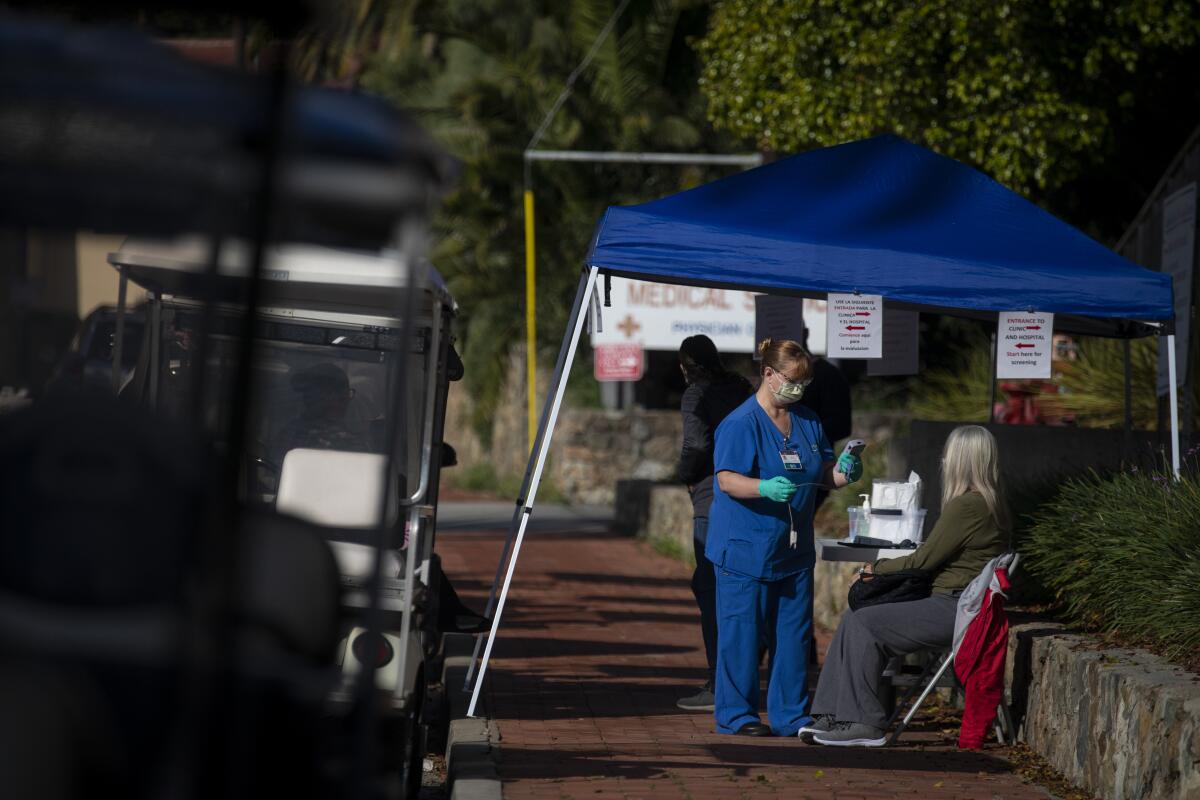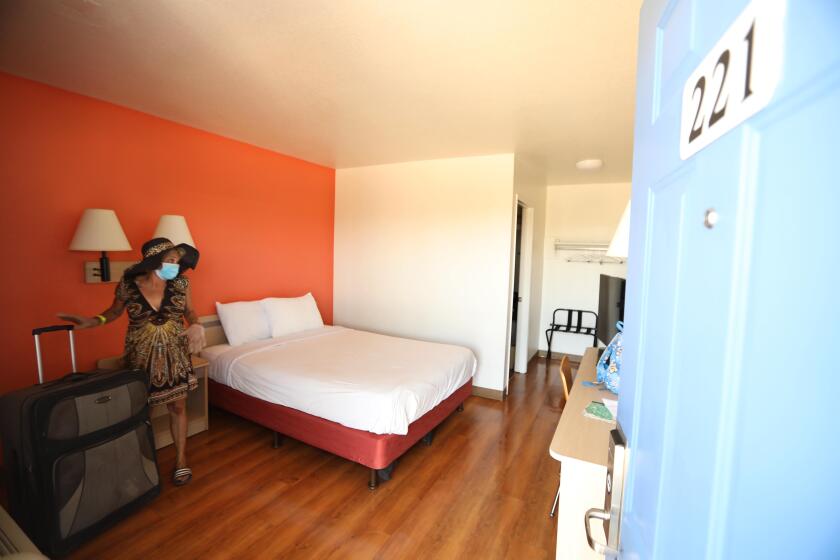$2 million grant saves Catalina’s only hospital from closure — for now

- Share via
A health insurer serving low-income Southern Californians has awarded Catalina Island’s only hospital a $2-million grant, which is expected to keep Catalina Island Health open for the time being. But it looks like the hospital will run out of cash again in December.
The emergency grant from L.A. Care is one of the largest cash infusions received by the financially strapped healthcare facility. Catalina Island Health Chief Executive Jason Paret had sounded the alarm in an Avalon City Council meeting in January, warning that the hospital was running on a $4-million annual deficit and probably would have to close this summer.
For the record:
4:12 p.m. April 12, 2024A previous version of this article said a $2 tax on visitors to Catalina is being collected to build a new $60-million hospital. According to a current estimate, the hospital will cost $162 million to build.
It was hardly a new development for the diminutive hospital, which has only a dozen beds. It has faced financial precarity since the 1990s.
“It would be catastrophic if this hospital were to close,” Supervisor Janice Hahn said in a press release. “This small hospital not only provides essential healthcare for island residents, it is the only source of emergency care on the island for millions of tourists.”
The island hospital currently serves more than 4,000 year-round residents and 1 million tourists who visit the island every year. “We see everything from strokes to stingrays, to jellyfish, to golf cart rollovers to heart attacks,” said Paret.
Catalina Island Conservancy and residents near compromise over deer eradication proposal
Although L.A. Care members aren’t a majority of the insured residents, L.A. Care Health Plan Chief Executive John Baackes said it was important for the insurer to step in — otherwise, every person with a medical emergency would have to be flown to the mainland, costing Los Angeles County taxpayers thousands of dollars per trip. According to Catalina Island Health, it costs $12,000 an hour for air ambulance flights, and without a hospital, about 2,000 people would need to be lifted from the island each year.
The insurer’s board of governors approved the financial lifeline last week.
“This is the first time we’ve done a no-strings-attached grant,” said Baackes. But he acknowledged that the money is just a stopgap for the hospital, not a solution to its long-term economic problems.
If Catalina Island Health manages to stay afloat, there’s still the matter of having to bring its facility into compliance with earthquake safety codes by 2030. Money for a new, $162-million hospital building is being raised gradually through a $2 tax on people crossing to the island that voters approved in 2020.
“[Now] they have more of a runway to find an affiliation with a larger organization that might be able to keep them going indefinitely,” Baackes said of the grant.
Peggy Wheeler, vice president of policy at the California Hospital Assn., said that small remote hospitals face bigger challenges than ever. When there isn’t a large enough population of privately insured patients to offset the cost of treating low-income Medi-Cal and Medicare enrollees, small hospitals lose money.
“That instability existed before COVID, but it was exacerbated by COVID,” she said, adding that prices for equipment and infrastructure have only gone up as hospitals have struggled to recruit healthcare workers to work in rural areas.
Madera Community Hospital in central California shut down in January 2023, leaving thousands of residents with few options other than to drive 35 miles to the nearest emergency room. Now the hospital is set to reopen after being approved for a $57-million no-interest loan from the state’s Distressed Hospital Loan Program.
Feds won’t reimburse California $300 million for homeless housing amid COVID. Congress wants answers
A letter by Rep. Robert Garcia (D-Long Beach) asks FEMA to reconsider and pay out the funding to cities that are already strapped for cash.
“Madera is a little bit of a canary in the coal mine,” said Wheeler. A 2023 survey commissioned by the California Hospital Assn. found that one in five California hospitals are at risk of closing. Now Wheeler and Paret are both looking toward Senate Bill 1423, set to be voted on later this month in the Senate Health Committee, to help restructure the way critical access hospitals like Catalina Island Health are reimbursed.
“That [bill] is a game changer for our organization,” said Paret. Even if the measure becomes law, however, its changes wouldn’t come into effect until 2026. So in the meantime, Paret is looking for other options, such as joining a network of hospitals.
Josh Lowenthal, the state Assembly member who represents Catalina Island, is hopeful that local collaboration between healthcare providers and lawmakers will offer a solution.
“There are tremendous economies of scale received by partnering with an entity that’s already operating in various locations,” said Lowenthal. He said they’re committed to continuing conversations beyond just the lifeline extended by L.A. Care. “We are happy that we could play a role in in bringing all the stakeholders together and have a positive outcome.”
More to Read
Sign up for Essential California
The most important California stories and recommendations in your inbox every morning.
You may occasionally receive promotional content from the Los Angeles Times.
















